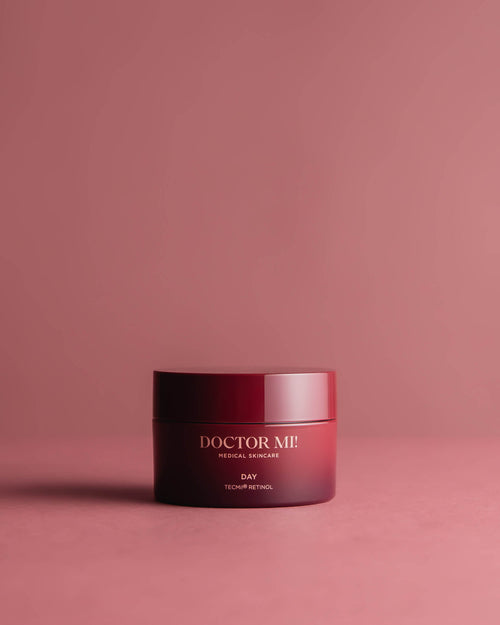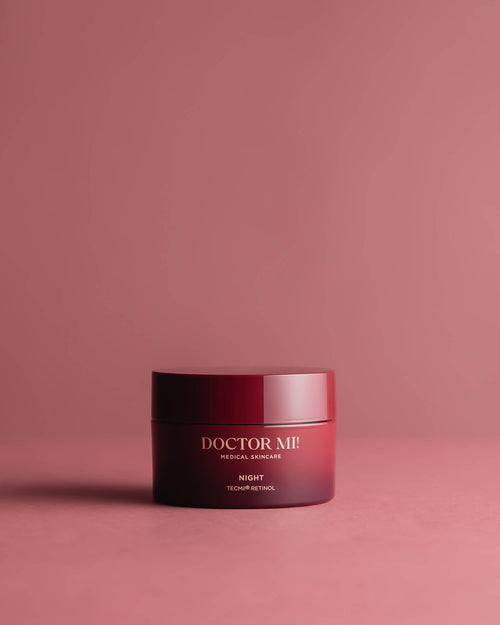In addition to proper care and a healthy lifestyle, the right nutrition is one of the most effective ways to slow down skin aging. This raises the question: Which foods are good for the skin? Here you will find an overview of the best foods for healthy skin. If your meals mainly consist of the following foods, you have the ideal conditions to turn back or slow down your skin's biological clock.

With these nutrients, you eat your skin healthy
Some nutrients can protect, repair, and even partially rejuvenate your skin. Most of them belong to the essential trace elements, which occur in small amounts of less than 50 mg per kilogram of body weight in the body. Without them, vital processes such as cell division and cell protection, metabolism, and many others would not be possible – and we would literally look old. But which minerals, trace elements, vitamins, and other nutrients does the skin need? Here are the most important ones:
The following foods are especially good for your skin
All the foods you find here have an anti-aging effect. Due to the variety of their valuable nutrients, this list is limited to those that are most important for your skin.
Drinks for healthy skin
Water or Infused Water: With at least two to three liters of clear water daily, your skin gets the moisture it needs from the inside. Alternatively, you can spice up your water with cucumber slices or fresh mint.
Unsweetened tea: If you drink unsweetened tea instead of water, you additionally provide your skin with moisture. Depending on the type of tea you choose, you benefit from antioxidants, vitamins, and more.
Vegetables and fruits that are good for the skin
You can help yourself to vegetables and herbs as often as you like. However, you should only enjoy fruits in moderation, despite their high vitamin content, because they contain a lot of fruit sugar.
- Avocados: Omega-3 fatty acids as well as vitamins A, B7, C, and E
- Berries: Manganese as well as vitamins A, C, and E
- Peas: iron, copper, proteins, and vitamin C
- Cucumbers: Iron and the vitamins B1, B2, B3, B5, B6, B7, B9, C, and K
- Carrots: Beta-carotene and Vitamin A
- Cabbage: Beta-carotene, iron, manganese as well as the vitamins A, B2, C, and E
- Coconuts: Vitamin B5
- Pumpkins: Beta-carotene, iron, and vitamin C
- Olives: Beta-carotene, omega-3 fatty acids, and vitamin E
- Salad: Beta-carotene, iron, copper, manganese, the vitamins B1, B2, B6, C and E as well as zinc
- Asparagus: Silicon as well as vitamins A, B, C, and E
- Spinach: iron, manganese, proteins as well as vitamins A, C, and E
- Edible mushrooms: iron, proteins, selenium as well as vitamins A, B1, B2, B3, B5, and D
- Red bell pepper: lycopene and vitamin C
- Tomatoes: Lycopene as well as vitamins A, B1, C, and E
- Fruits and citrus fruits: the vitamins A, B1, B2, B3, B5, B6, B7, C, and E
Skin-enhancing herbs and spices: Spice up your skin
- Basil: iron, flavonoids as well as vitamins A, B1, B2, and B3
- Chili: the vitamins A and C
- Ginger: Iron and Vitamin C
- Garlic: Manganese, vitamins B6 and C, as well as zinc
- Cress: Manganese as well as vitamins A, B1, B2, and C
- Cumin: Iron as well as vitamins A and C
- Turmeric: Iron as well as vitamins B1, B2, and C
- Parsley: Iron, flavonoids as well as vitamins A, B1, B3, and C
- Chives and spring onions: iron as well as vitamins A and C
Nutrient-rich legumes, nuts & cereal products
- Chia seeds: iron, omega-3 fatty acids, proteins as well as the vitamins B2, B12, C, and E
- Oats and oat flakes: iron, manganese, proteins, silicon, vitamin B7, and zinc
- Millet: Amino acids, iron, silicon, the vitamins B1, B3, B5, and B6, as well as zinc
- Legumes: iron, manganese, proteins, vitamins B7 and E, as well as zinc
- Flaxseed: Omega-3 fatty acids and vitamin E
- Soybeans: Coenzyme Q10, iron, proteins, selenium, and zinc
- Nuts and almonds: Coenzyme Q10, iron, copper, manganese, omega-3 fatty acids, vitamins B5 and E, as well as zinc
- Whole grains: iron, manganese, proteins, selenium as well as the vitamins B1, B2, and B9
- Whole grain rice: Manganese, proteins, the vitamins B1, B3, B5, B6 and E as well as zinc
Animal products with anti-aging effects
- Fatty fish: Coenzyme Q10, iron, copper, omega-3 fatty acids, protein, selenium, the vitamins B7, D, and E, as well as zinc
- Eggs: iron, proteins, selenium, vitamins B7 and D, as well as zinc
- Lean meat – primarily poultry: Coenzyme Q10, iron, proteins, selenium, vitamins B2 and D, as well as zinc
- Shellfish: iron, omega-3 fatty acids, proteins, the vitamins B1, B2, B6, C, D, and E, as well as zinc
- Skyr, quark, and Greek yogurt: proteins as well as vitamins B1, B2, B3, B5, B6, and C
Nutrients that are good for your skin
Below, we explain in detail which nutrients strengthen your skin from the inside and contribute to its health.
Amino acids – proteins with anti-aging effects
Amino acids are the building blocks of protein. They have an antioxidant effect, with which they protect the skin from free radicals and external pollutants. Proteins strengthen the skin surface and thus help to minimize fine wrinkles and lines.
Antioxidants – Saviors from free radicals
During various metabolic processes, the body itself produces free radicals. When the skin comes into contact with UV radiation or other negative influences such as cigarette smoke or exhaust fumes, additional free radicals are generated. This stresses the skin and causes it to age faster. Antioxidants are the best protection against this and sustainably slow down skin aging. Since antioxidants are fat-soluble, they only develop their protective effect when you consume some olive oil or a little fatty food along with them. Antioxidants include vitamins C and E, the coenzyme Q10 related to vitamin E, selenium, zinc, or secondary plant compounds such as flavonoids, beta-carotene (provitamin A), and other carotenoids like lycopene and astaxanthin.
Many of the mentioned antioxidants have additional protective functions. For example, vitamin C works against age spots, is anti-inflammatory, and stimulates collagen production, which ensures firm and elastic skin and strong connective tissue. Lycopene filters toxins from skin cells and thus slows down skin aging. Beta-carotene is converted by the body into vitamin A, i.e., retinol, which accelerates cell growth and slows down the aging process of the skin. Retinol itself is also found in some foods. Zinc helps metabolize valuable omega-3 fatty acids, stimulates the skin's defenses and collagen production. This contributes to smooth skin and a fresh complexion.
Iron – Oxygen Supplier of the Skin
Iron is an important component of cell division and metabolism. It is also involved in the formation of red blood cells, which supply the body and thus the skin with oxygen. Without iron, your skin appears dull and pale.
Copper – Trainer of Connective Tissue
If you want to strengthen your connective tissue, an adequate supply of copper is crucial. A copper deficiency weakens your connective tissue and promotes cellulite. Additionally, copper has anti-inflammatory effects, and without it as a transport medium, the important iron does not reach where the body needs it.
Manganese – Fuel & Cellulite Killer
Without manganese, your energy metabolism would not be possible. Your connective tissue would also be weak and prone to cellulite.
Omega-3 Fatty Acids – Fountain of Health for the Skin
Omega-3 fatty acids are part of the protective barrier of your skin. They ensure that it does not dry out and that external influences do not harm it, making it elastic and firmer. In addition, omega-3 fatty acids have anti-inflammatory effects, which have a positive impact on skin diseases.
Silicon – Water reservoir of the skin
Silicon has a high water-binding capacity and helps your skin retain moisture, giving it optimal firmness. Additionally, silicon is a component of skin and connective tissue and helps to cross-link the proteins.
Vitamin B group – the skin rejuvenators
All eight vitamins from the vitamin B group are water-soluble, meaning they exert their effect even without you consuming fat or oil. The skin-friendly B vitamins include:
- Thiamin (B1)
- Riboflavin (B2)
- Niacin (B3)
- Pantothenic acid (B5)
- Pyridoxine (B6)
- Biotin (B7)
- Folic acid (B9)
- Cobalamin (B12)
B vitamins are responsible for many metabolic processes and have indispensable effects on the skin: they protect against external influences, stimulate cell growth and cell division, increase the resilience of your skin, manage sebum production, and refine your complexion. In addition, some B vitamins like B5 are excellent wound healing boosters.
Vitamin D – solar energy to eat
The sun vitamin D strengthens the skin's defenses and alleviates many skin conditions. However, since direct sunlight accelerates the aging process of the skin, intake through food is the most skin-friendly way to supply it, without any cell damage.
Which foods harm the skin?
Now you know which nutrients are good for your skin. But there are also some foods and substances that you should better avoid or at least consume very sparingly for the sake of your skin, because they can negatively affect cell renewal and skin elasticity and accelerate the aging process. These include: alcohol, saturated fats found in, for example, red meat, and trans fats in ready-made meals, as well as preservatives with their E-numbers, salt, and sugar. Sugar is responsible for the skin-damaging glycation. Sugar molecules are not only present as refined sugar in many foods but also in carbohydrates and in the form of fructose in fruit.
Are there skin-friendly sweets and snacks?
Besides nuts and almonds for snacking, there is also a real treat that helps your skin: dark chocolate. It is not only a comfort for the soul but also a skin saver! With a cocoa content of more than 80 percent – the higher the percentage, the better – the ingredients of cocoa protect against skin damage caused by UV radiation and free radicals, stimulate blood circulation, and make the skin more supple.
Skin care tastes so delicious
Try our three favorite recipes for healthy skin, packed full of healthy foods!





